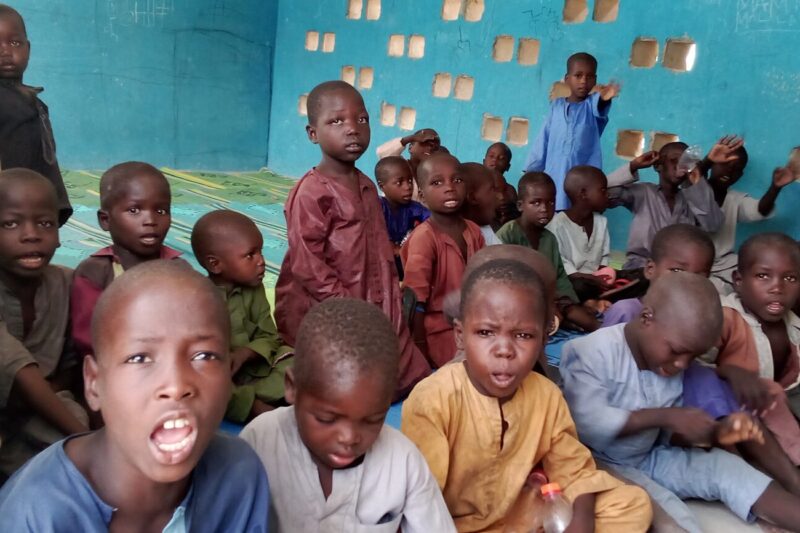Rice farmers in Borno State say too little rain during the wet season and excessive fuel costs for generators have left them with little, if anything, to harvest.
Rice farmers in Dikwa, Borno State, have been left in the lurch because of scarce and fluctuating falls during the rainy season – some lost almost 90% of their crops and others all their crops.
Most of them also lost a lot of money – having bought the seeds, then trying to pay for fuel for generators and then having little, if anything, to no harvest – and say they will struggle to survive after being left high and dry.
The farmers blamed climate change for the poor rainfall this year.
Bulama Bukar Grema, a rice farmer, said: “The lack of surface water is very harmful for our crops. Rice will not grow without enough water. Because we had so little rain we had to get water from the river but it is far from where our farmlands. We installed three generators to pump the water to our lands. But the price of fuel is so expensive now. So, we could not afford to get enough water. Last year we got a good harvest but this year, even before it was time to harvest, our crops were damaged and destroyed.”
Malam Modu told RNI that after the floods last year he had decided to grow rice this year, adding that he was expecting to export his harvest to other states.
“We were hoping for good rains and also for the River Ngadabul to break its banks like last year. But we got hardly any rain and the river didn’t overflow. We lost nearly all our crops. I think we didn’t even get 10% of the expected harvest this year.”
Lidia Dania has been growing rice in Dikwa for many years.
“At the start of the rainy season, the rice crops were looking good. But then the rain stopped and our crops began to collapse because there was not enough water for them to grow. A group of farmers decided to work together. We each donated ₦500 to buy petrol for a generator to pump the water to our lands. But, because of the exorbitant cost of fuel, the water never reached us and our crops were destroyed.”
ZAINAB ALHAJI ALI








